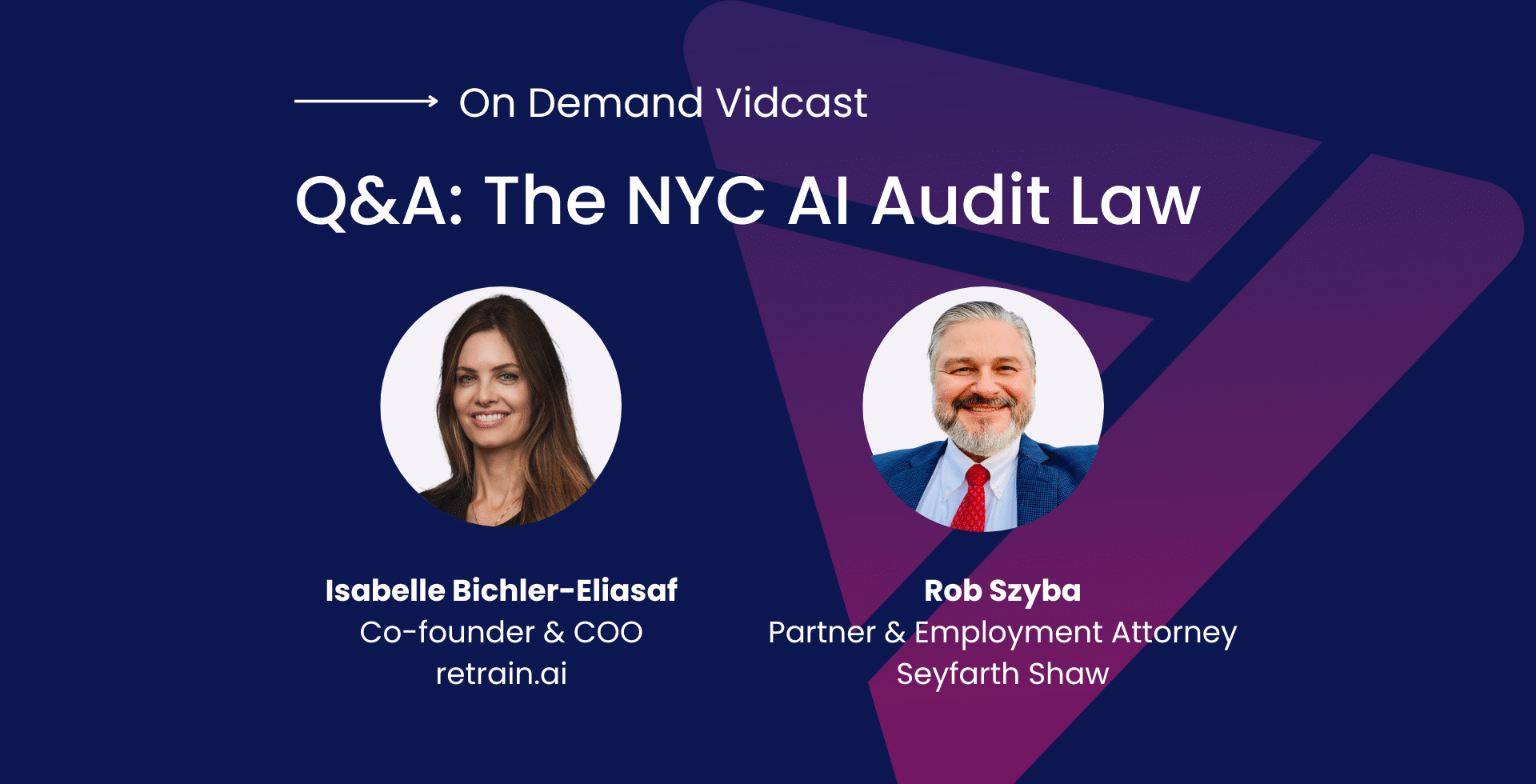As of July 2023, Local Law #144 in New York City is in full effect for enterprises using Automated Employment Decision Tools (AEDT) to assist in hiring decisions. The complete rollout of the new regulation includes punitive enforcement for those found in disagreement with the law.
Given the prospect of a civil penalty for non-compliance, HR leaders are well-advised to keep up to speed on specific requirements of the law, starting with AEDT audits. The law mandates that:
- AEDT system audits be conducted by an independent entity
- Summarized audit results be posted on the employer’s website
- Alternative selection processes or accommodations be provided to job candidates who opt out of AEDT-assisted selection
Despite being known as a NYC-based law, Local Law 144 has generated questions about its actual domain. The geographical guidelines now clarify:
- If the role is located in New York City: A bias audit and notice must be sent to NYC residents
- If the role is located outside of New York City: A bias audit and notice are not required
- If the role is fully remote but the company has only a New York City office: A bias audit and notice must be sent to NYC residents
- If the hiring company does not have an office in New York City: A bias audit and notice are not required
- If the hiring company has offices both in and outside of New York City: Specifics of the role will dictate the need for a bias audit and notice
To break the law down further, let’s start with a few, tangible moves HR leaders and Talent Acquisition specialists can make now to plan for Local Law 144 compliance:
- Conduct internal assessments to find out what tools are currently being used that may qualify as an AEDT
- Build an inventory and tracking plan for identified AEDTs, including where and how they’re used
- Monitor and track AEDT performance, including data input and outcomes, to test accuracy
- Develop policies and procedures for storing demographic and selection data needed for AEDT audits
- Create a compliance team of HR leaders, legal advisors and tech representatives to prepare or adapt compliance disclosures
As stewards of Responsible AI, we at retrain.ai are keenly aware that the issues raised by Local Law #144 directly impact the talent intelligence space. Automated, accelerated, bias-free hiring processes powered by innovative technology act as the key to growing and supporting a diverse and inclusive workforce; Responsible AI is the key to reaching DEI goals and remaining compliant.
If your organization is considering integrating an AI-driven solution into your HR tech stack, be sure to check out our Buyer’s Guide to Talent Intelligence to learn more about what to look for, what questions to ask, and how to engage your teams in the process.
retrain.ai is a Talent Intelligence Platform designed to help enterprises hire, retain, and develop their workforce, intelligently. Leveraging Responsible AI and the industry’s largest skills taxonomy, enterprises unlock talent insights and optimize their workforce effectively to hire the right people, keep them longer and cultivate a successful skills-based organization. retrain.ai fuels Talent Acquisition, Talent Management and Skills Architecture all in one, data-driven solution. To see it in action, request a demo.
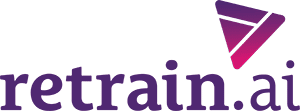

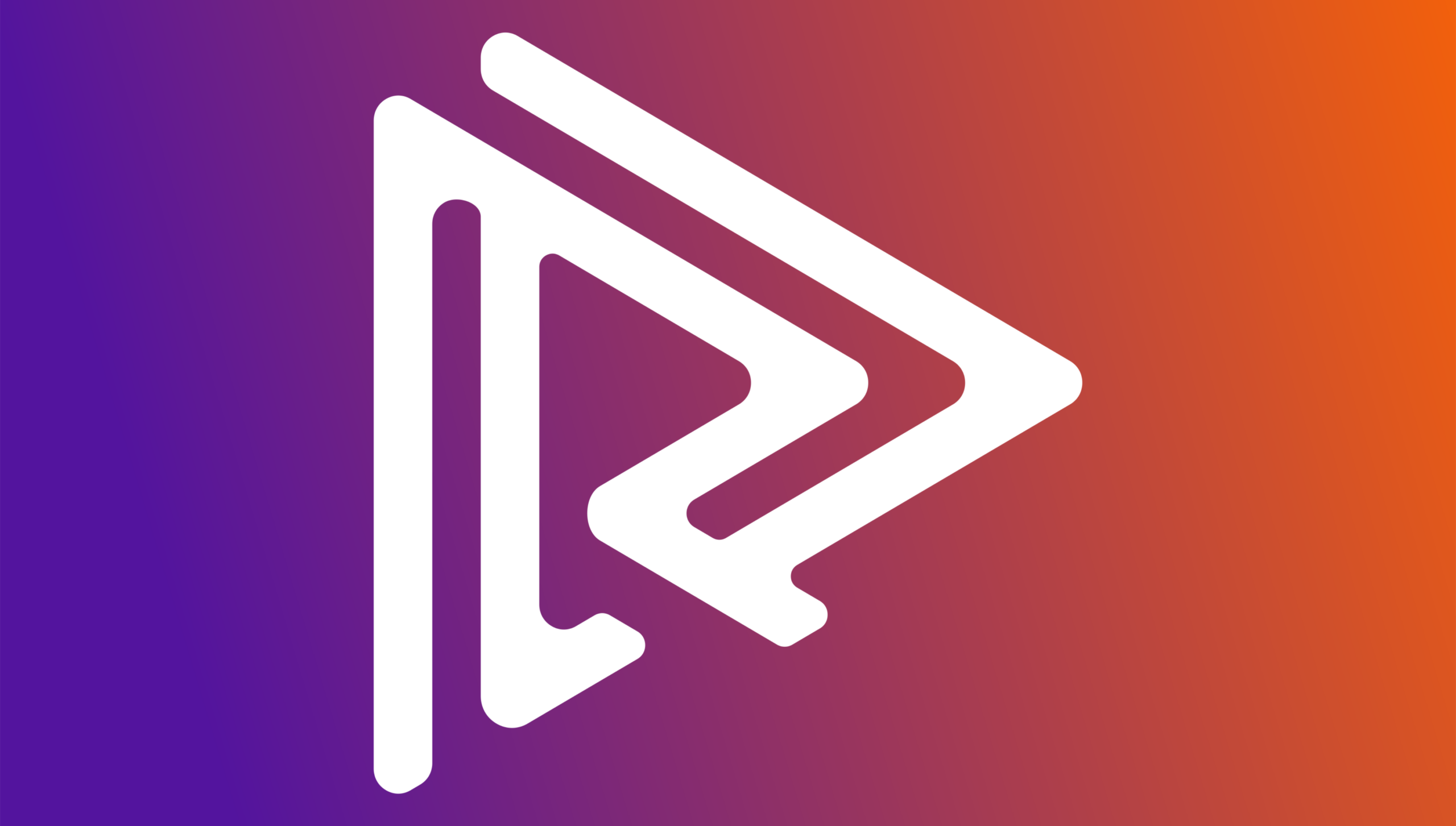
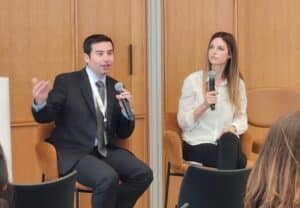 Starting off the day, keynote speaker Commissioner Keith Sonderling of the EEOC shared insights on the expansion of Responsible AI governance across the U.S., emphasizing that current regulations put the onus on businesses using AI systems to ensure they generate fair end results–
Starting off the day, keynote speaker Commissioner Keith Sonderling of the EEOC shared insights on the expansion of Responsible AI governance across the U.S., emphasizing that current regulations put the onus on businesses using AI systems to ensure they generate fair end results–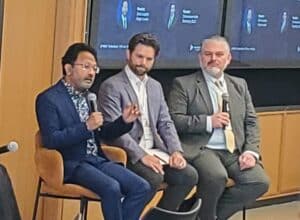 Talk of Responsible AI continued into the first panel
Talk of Responsible AI continued into the first panel  In conversation with retrain.ai’s Amy DeCicco, Dr. Anna Tavis of the Human Capital Management Department at New York University and Dr. Yustina Saleh from The Burning Glass Institute posed provocative questions, encouraging attendees to think about questions like whether empathy is truly a skill or a trait, or how HR leaders can tell from a skills profile whether or not a candidate will be able to do the job needed.
In conversation with retrain.ai’s Amy DeCicco, Dr. Anna Tavis of the Human Capital Management Department at New York University and Dr. Yustina Saleh from The Burning Glass Institute posed provocative questions, encouraging attendees to think about questions like whether empathy is truly a skill or a trait, or how HR leaders can tell from a skills profile whether or not a candidate will be able to do the job needed. With more enterprises talking about transforming to an SBO model, Dr. Sandra Loughlin of EPAM Systems shared lessons learned from her company’s transformation, while Heidi Ramirez-Perloff discussed The Estee Lauder Company’s exploration into SBO strategy. Urmi Majithia of Atlassian delved into executing technology to help overcome the challenges of becoming an SBO, and Ben Eubanks of Lighthouse Research &
With more enterprises talking about transforming to an SBO model, Dr. Sandra Loughlin of EPAM Systems shared lessons learned from her company’s transformation, while Heidi Ramirez-Perloff discussed The Estee Lauder Company’s exploration into SBO strategy. Urmi Majithia of Atlassian delved into executing technology to help overcome the challenges of becoming an SBO, and Ben Eubanks of Lighthouse Research &  Following the panel discussion, Dr. Loughlin sat down for a one-on-one with retrain.ai CEO Dr. Shay David to go more in depth into EPAM’s experience developing a thriving SBO strategy, sharing benefits, pitfalls and lessons learned along the way.
Following the panel discussion, Dr. Loughlin sat down for a one-on-one with retrain.ai CEO Dr. Shay David to go more in depth into EPAM’s experience developing a thriving SBO strategy, sharing benefits, pitfalls and lessons learned along the way.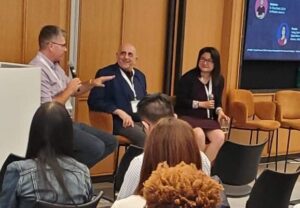 No discussion around Responsible HR would be complete without an exploration of the huge impact ChatGPT and other
No discussion around Responsible HR would be complete without an exploration of the huge impact ChatGPT and other 

